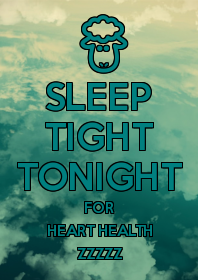
Sleep. We barely give it thought, until we can’t, yet it is fundamental for health and productivity. We spend approximately one third of our lifetime asleep, crucial time  when the brain recharges, and goes to work consolidating the days learning into memory. Except for babies and children, our need for seven to eight hours of sleep each night doesn’t change throughout our lives, but our sleep patterns do, as anyone wide awake at three in the morning knows. An older adult who goes to bed earlier and wakes up earlier might nap more during the day . A teenagers’ biological clock keeps them awake later in the evenings and sleepier early mornings. Biological conditions unique to women: menstrual cycles, pregnancy, and menopause can wreck havoc on sleep. A recent National Sleep Foundation poll of adults revealed that women are more likely than men to have difficulty falling asleep and staying asleep. Forty million Americans suffer from sleep disorders. Yet what happens during sleep is stunning.A new sleep study conducted by monitoring the brain waves of 6-10 year olds sleeping shows that the brain goes through a remarkable amount of reorganization during puberty that is necessary for complex thinking.
There is an even more compelling reason for a good night’s sleep for your well-being. People who sleep poorly and less than six hours have a 65% higher risk of dying from a heart attack or stroke compared to sound sleepers who are getting seven-eight hours. This didn’t apply to sound sleepers getting only six hours who wake up feeling fit and rested. The research from Wageningen University and the National Institute for Public Health and the Environment is based on 20,000 people, with a ten and fifteen year follow-up. The Dutch study, published last week, showed that if you eat well, don’t smoke, drink moderately, and are physically active the risk of dying from heart disease is lowered by a staggering 83 %. (Adding only one of these positive lifestyle factors lowers the chance of developing heart disease by 57%.)
Until recently it was unclear why we eat more when we don’t get enough sleep. Just getting less sleep doesn’t mean you will gain weight, but a recent study done at the University of Colorado and published in the Proceedings of the National Academy of Science showed the participants sleeping up to five hours a night ate a smaller breakfast but binged on after-diner snacks. : “When people are sleep restricted, the findings show they eat during their biological nighttime when internal physiology is not designed to be taking in foodâ€, says Kenneth Wright, director of CU Boulder Sleep and Chronobiology Laboratory. Nighttime eating was well over the amount of calories than any other meal consumed. These findings add to the growing body of evidence that late night eating certainly can add unwanted weight.
Here are some tips from the National Sleep Foundation intended for “typical “ adults, but not necessarily for people with specific medical problems, when consulting with your doctor would be the best approach.
1.Go to bed and wake up at the same time including weekends. Our internal clock is regulated by a circadian rhythm that all living beings have-roughly a 24-hour cycle. It rises and falls at different times of the day, depending on whether you are a “morning person†or “evening person†Getting enough sleep ensures the dips are less intense
2. Establish a relaxing nighttime ritual. A hot bath is a better idea than paying bills. Try to wind-down away from computers, or bright lights. The brightness stimulates neurons that help control the sleep-wake cycle that it is time to shine, rather than snooze.
3. Create an environment that is dark, quiet and cool. A quiet environment free of interruptions makes your bedroom reflective of the value you place on your sleep. If your partner snores, try earplugs. Eyeshades or a humidifier can help with light or dry temperatures.
4. Sleep on a comfortable mattress and pillows. If your mattress isn’t comfortable and supportive, it may be time for a new one, as the life expectancy is about 9-10 years. Also check for allergens that might affect you.
5. Finish eating at least 2-3 hours before bedtime. Eating and drinking too close to bedtime might make you feel uncomfortable.
6 . Exercise regularly. Vigorous exercise, or any at all, is better than no activity, but not at the expense of your sleep.
7. Avoid caffeine ( coffee, tea, chocolate ) and alcohol close to bedtime. It can keep you awake. Caffeine sensitivity can vary widely: it takes between four and seven hours for half of the stimulant to leave your body, making it harder for you to wind down. Although many people think of alcohol as a sedative, it actually disrupts sleep and leads to a night of less restful sleep.
Recharging sounds like a great idea. Sweet dreams tonight.
Connie Aronson is an American College of Sports Medicine health & fitness specialist.
Published in the Idaho Mountain Express April 26, 2013
